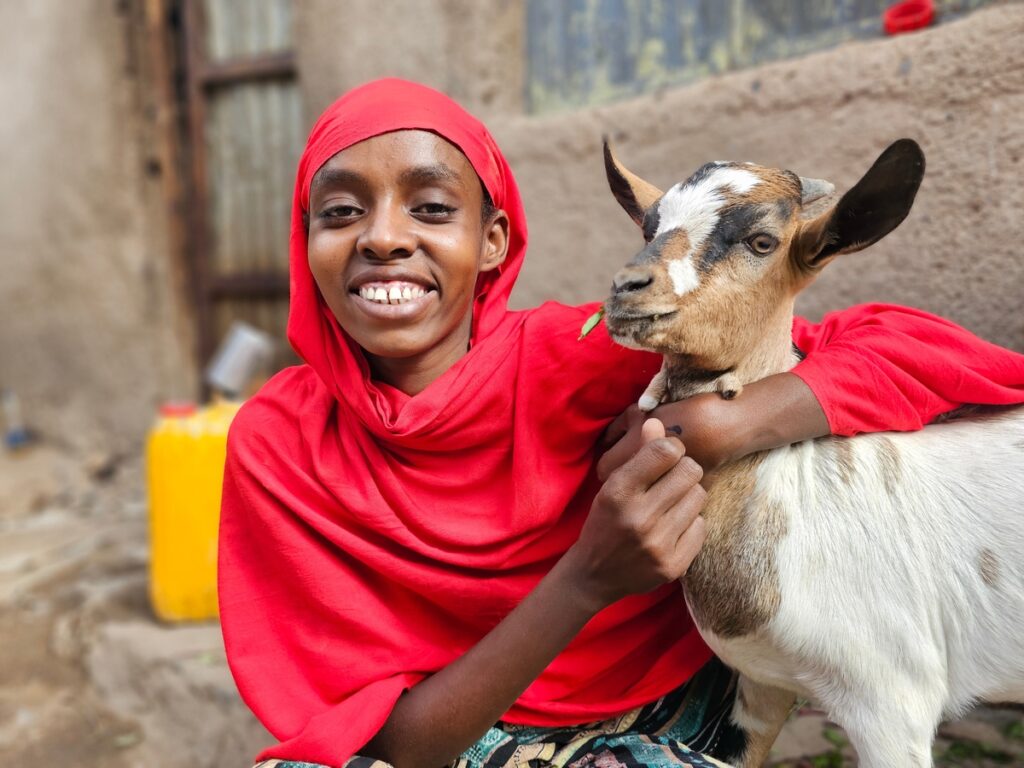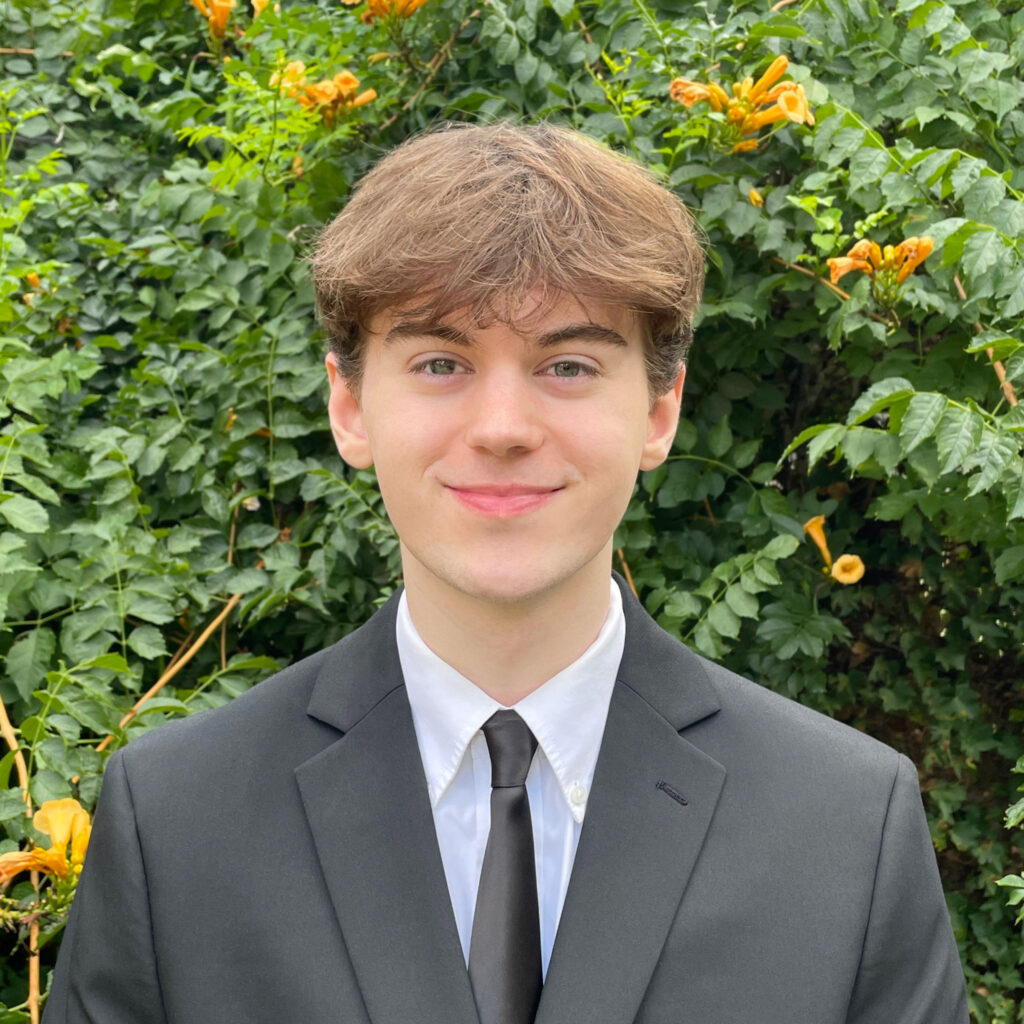Poverty isn’t just a lack of income. It becomes a barrier that controls daily decisions, limits opportunities, disrupts stability, and makes it hard to see a way forward. Yet in many corners of the world, community members are taking the initiative to regain direction over their futures. Whether they’re launching small businesses, building grassroots support systems, or sharing knowledge within their communities, these individuals are working with limited resources and a bold sense of purpose to lay the foundation for a more secure and self-sustaining path forward. This growing momentum is made possible through the partnership of organizations that provide the tools, resources, and encouragement needed to help local efforts thrive and take root.
To honor the International Day for the Eradication of Poverty, we’re highlighting six organizations that stand beside these changemakers, amplifying the impact of their efforts. Each story below reflects what’s possible when determination meets support, and when people are empowered to shape their own futures.
Accion — “I have come so far”: Madhusmita’s journey
It’s the beginning of the month and orders are pouring in for FreshXpress, a delivery service based in Bhubaneswar, Odisha in India. Families are using the FreshXpress app to order cereals, grains, and other kitchen staples. Event planners are ordering supplies for upcoming weddings. And nearby hotels are stocking up on snacks and fruit to serve their guests. Madhusmita Patro, the 32-year-old founder of FreshXpress, oversees her five part-time employees and several temporary staff as they pack orders and load them onto motorbikes for delivery.
FreshXpress was born out of Madhusmita’s experience as a new mother during the 2020 COVID-19 outbreak. “My inspiration actually came from the pandemic,” she says. “I was a single mother here alone at home with a baby.” Her husband serves in the military and travels frequently. When COVID-19 lockdowns began, Madhusmita found herself home alone with their infant son, unable to work or safely buy essential items for her household. Existing delivery services were too slow, and their stock was unreliable, pushing her to take matters into her own hands and open her own service with her cousin. They rented a space, ordered inventory, and hired a developer to create the app customers use to place orders seamlessly.
Women entrepreneurs like Madhusmita often struggle to access the financial services that can help their businesses succeed. Traditional financial institutions may believe that these customers are too small, too hard to reach, or too unprofitable to serve. In India, only a small percentage of businesses are owned by women, and female entrepreneurs receive even less funding to start or grow their companies.
But innovative, digitally focused financial providers like Annapurna Finance Pvt. Ltd. are changing that narrative. Madhusmita received a loan from their Micro, Small, and Medium Enterprise (MSME) financing products. The loan has helped her pay rent and order inventory so she can continue to build her business. Accion is a longtime partner of Annapurna Finance. We have worked together on Annapurna’s efforts to provide innovative financial services that can reach small businesses and individuals across India, as well as their own digital transformation. As they work to become a fully digital financial institution, Annapurna hopes to bring women into the formal financial system by providing them access and faster and more convenient products through digital channels.
Working capital like Annapurna provided to Madhusmita is critical to grocery businesses, which typically hold a lot of inventory and have limited cash available to invest in their growth. Over time, she wants to expand from grocery into seasonal items, such as pre-cut vegetables and other fresh produce items. Eventually, she wants to also make her own products and sell them under her own brand name. “I started from nothing and it’s good that I have come so far. I don’t want to stop here; I want to keep going,” she says proudly.
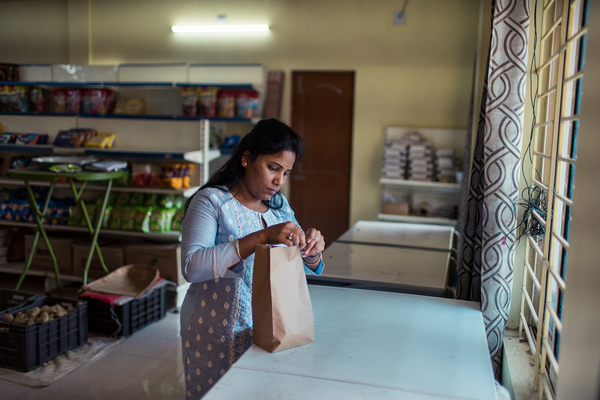
CARE — Youth VSLS groups building resilience
Seniya, 22, is a member of a CARE Youth Village Savings and Loan Association group. With the money from CARE with the support from Beiersdorf she was able to buy herself some goats and chickens which she raises and sells.
“I have 14 chickens, but only seven of them lay eggs, because I cannot afford to feed them properly. Sometimes I go to hotels and ask them for the guests’ leftovers to save money on the feed for my animals,” explained the 22-year-old. She sells one egg for 10 Ethiopian Birr (around 17 cents). Some of her income she saves for a girls’ savings group which CARE, with the support of Beiersdorf, has established to support girls’ businesses, give training, and spread awareness on different topics such as early marriage.
Seniya is one of the money box key holders in her group of thirty young women aged between 18 and 24, and she held a VSLA group session in the courtyard of her home, discussing early marriage. When asked who was married before the age of 18, half the girls raised their hands. When asked who had an early marriage proposal, but was able to deny it, the hands of the other half went up – including Seniya’s.
Seniya had her first marriage proposal when she was 16, but she and her mother refused. “I am the oldest of nine siblings. I learnt from my mother and friends who married early and had children with difficult deliveries with a very hard life. That scared me. So, I said no. I did not want that for myself,” she explained.
Seniya’s mother Nujuma, 35, was married when she was 15 and had Seniya at 16, when she herself was still a child. “Being a mother or a wife is not just about having children. I want to be able to be a parent to my child and not have to grow up together with my own children. This young you do not even know how to breastfeed properly and giving birth is so dangerous. I also want to protect my younger sisters from marrying early,” said Seniya.
“I only have a little income. I sell papaya on the street. Sometimes, when I am very desperate, I go knocking from door to door to try and find someone who will buy something. It is very difficult work,” her mother Nujuma described. “I work hard, but it is not enough for all of us. When we buy clothes, it is on loan. And we also cannot afford enough food for everyone.”
Seniya and her mother often skip meals, so the other children can eat first. “But with her business we are surviving, and she has so many plans for the future. She is our strength.”
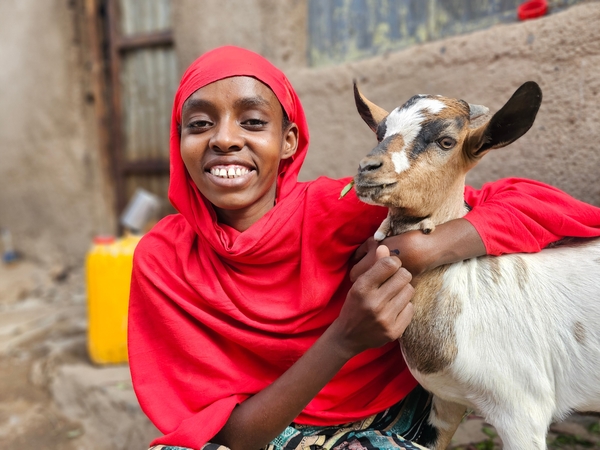
FINCA International, Inc. — Financial empowerment through access to credit
Since 1984, FINCA has been on a mission to end global poverty. In the spirit of our 40th anniversary, we have set a bold and inspiring goal: to reach more people living in poverty than ever before. Last year, FINCA impacted the lives of approximately 14 million people across Africa, Latin America, and Asia. Now, with renewed determination, FINCA strives to touch the lives of even more communities in need.
Despite promising technological advances, efforts to alleviate poverty are hampered by rising inflation, armed conflict, and other factors. Nearly 700 million people around the world live in extreme poverty, earning less than $1.90 a day. According to The World Bank, it is unlikely to meet the goal of ending extreme poverty by 2030 without exceptionally high rates of economic growth over the remainder of this decade. It remains one of the toughest challenges of our lifetime. FINCA’s response to this reality must be both strategic and tactical. We cannot do it without your support. Will you join our movement and give to our poverty eradication programs?
Invest with us in women like Margaret Mbuthia who sells blankets and women’s shoes in Nairobi, Kenya. Mbuthia is a client of Kwara, a financial empowerment platform supported by FINCA. Through Kwara, she is able to access credit easily which she then uses to grow her business.
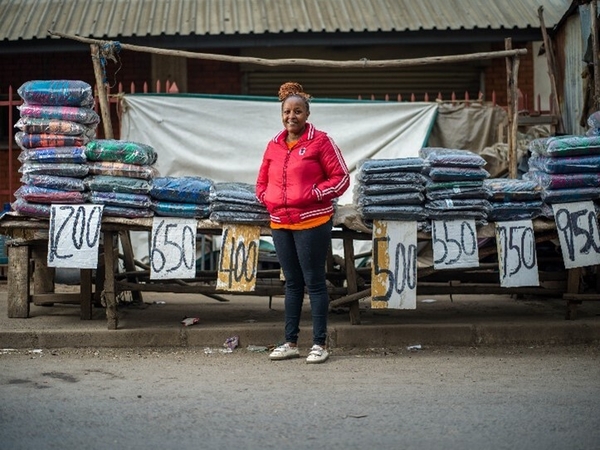
World Food Program USA — Changing lives: Rwanda
In sub-Saharan Africa, more than 60% of women work in agriculture. They are the largest contributors to the region’s agricultural sector but face systemic challenges in their access to farming inputs such as seeds, tools, and finance. WFP centers women and girls as part of its food systems work in East Africa. WFP is one of the region’s largest food buyers, which is why our programs work with women to ensure they have the training, tools, financial resources, and access to markets they need to boost agricultural production. This includes strengthening small-scale farmer cooperatives, improving access to finance and predictable markets, implementing initiatives to reduce post-harvest losses, and providing access to inputs and services for an improved quality of crops. WFP also links farmers to potential commercial buyers, as well as to government-led programs of fortified blended food for nutrition and homegrown school meals. In Rwanda, agriculture represents one-third of the country’s economy. WFP supports the government of Rwanda in strengthening the agriculture sector, boosting crop production and incomes, and improving the food and nutrition security and the quality of life of Rwanda’s rural population.
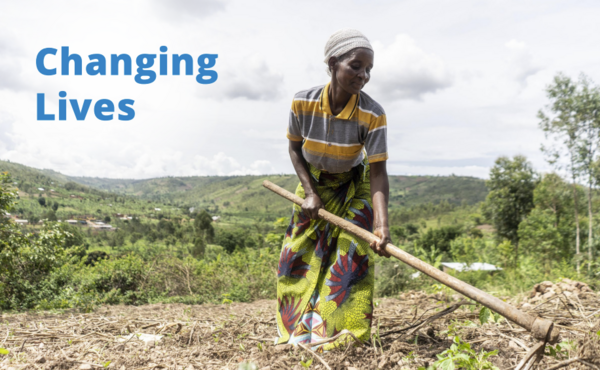
International Orthodox Christian Charities — Rebuilding a shop and a life in Greece
Since 2015, Ioannis has owned a bicycle-repair shop in a town on northern Evia, in Greece. In the summer, he offered bicycle rental and repairs. The rest of the year, he organized bike tours through northern Greece.
Ioannis dreamed of expanding his business — and was well on his way in summer 2021, when fires completely destroyed his shop. Ioannis, however, refused to give up on his dream.
He rebuilt his workshop as quickly as he could, and now he needed new equipment more than ever. IOCC’s fire-relief program responded, supplying Ioannis with new tools to replace what he’d lost, and a state-of-the-art repair bench. Ioannis reopened his business in 2022.
“This [equipment] will upgrade my work so much,” Ioannis said. “I will finally be able to expand my market and repair bikes for big retailers in Athens and even from abroad. Now … my business is reborn from the ashes. Thank you, IOCC!”
With support from donors like the Greek Orthodox Archdiocese of America, the National Philoptochos Society, the Jaharis Family Foundation, and the George and Judy Marcus Family Foundation, as well as many individuals, IOCC is helping people like Ioannis not only recover but also grow their livelihoods and build for the future.
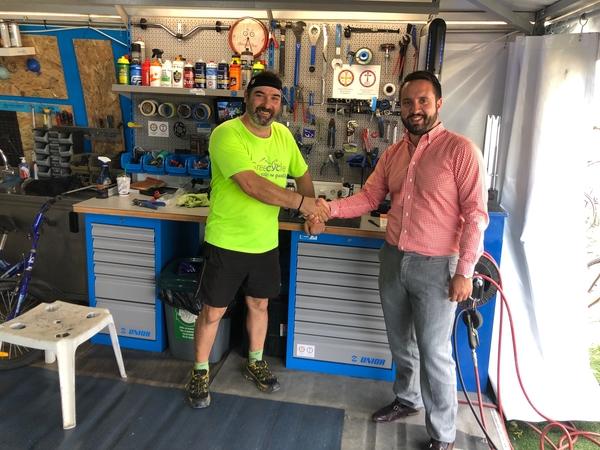
Oxfam America — Envisioning an accessible future
Anastasia* is a wheelchair user who lives and operates a nongovernmental organization serving people with disabilities in Mykolaiv. Before the war, she was employed at a plant that repaired ships, but like at least half the population of the city, she had to flee when the conflict started. She lost her job but returned with a mission: to make transportation accessible for people with disabilities.
Recently, she was inspired to launch a taxi service for wheelchair users called Invataxi. What sets Invataxi apart from other taxi companies is the way it considers not just the physical, but social and emotional needs of people with disabilities. Standard taxis aren’t accessible and drivers may not know how to accommodate people. Mykolaiv does have a social transportation service with two wheelchair-equipped vehicles in its fleet, but there are restrictions on how and when it can be used. For instance, it will take people to the hospital or to handle administrative issues, but not to see friends or go to the store.
“Life is not just about going to the hospital or solving administrative issues,” said Anastasia. “At first, I wanted to launch [this service] through existing taxi businesses, but no one agreed. They just said it was not profitable, and they were not interested. We are people, just like everyone else.”
Anastasia and her business partner Ivan* applied for a grant from Shchedryk Charitable Foundation, through an Oxfam and U.K Disasters Emergency Committee livelihoods project. Founded in 2022, the organization began its work supplying food. Through the partnership with Oxfam, Shchedryk has been able to meet to grow to meet the needs of the returning population.
“Oxfam is the first organization that helped us grow,” said Vitaly Kuznetsov, Shchedryk’s executive director. “We grew up with them, they saw us, and now we have very big prospects.”
More than 400 applications were submitted for the grant program, and Invataxi was one of 38 applicants chosen to receive funding. So far, the money has gone toward outfitting taxis with wheelchair lifts. They plan to also purchase stretchers so bedridden patients or patients who cannot sit for long can use their taxis.
“Shchedryk has allowed us to make this project a reality,” said Anastasia. “It would have been very difficult for me to raise the money to purchase all the equipment myself.”
The goal is to run Invataxi as a social enterprise, training and employing workers with disabilities to be drivers and dispatchers, including people who are returning from war.
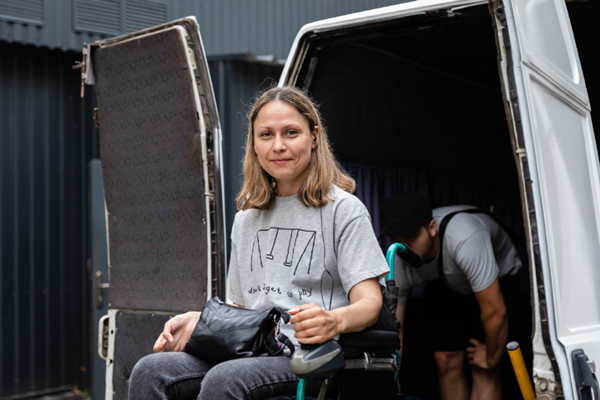
Feeling inspired? Consider donating to one or more of these charities in your workplace giving campaign.
Thank you Accion, CARE, FINCA International, Inc., World Food Program USA, International Orthodox Christian Charities, and Oxfam America for providing content for this blog.

